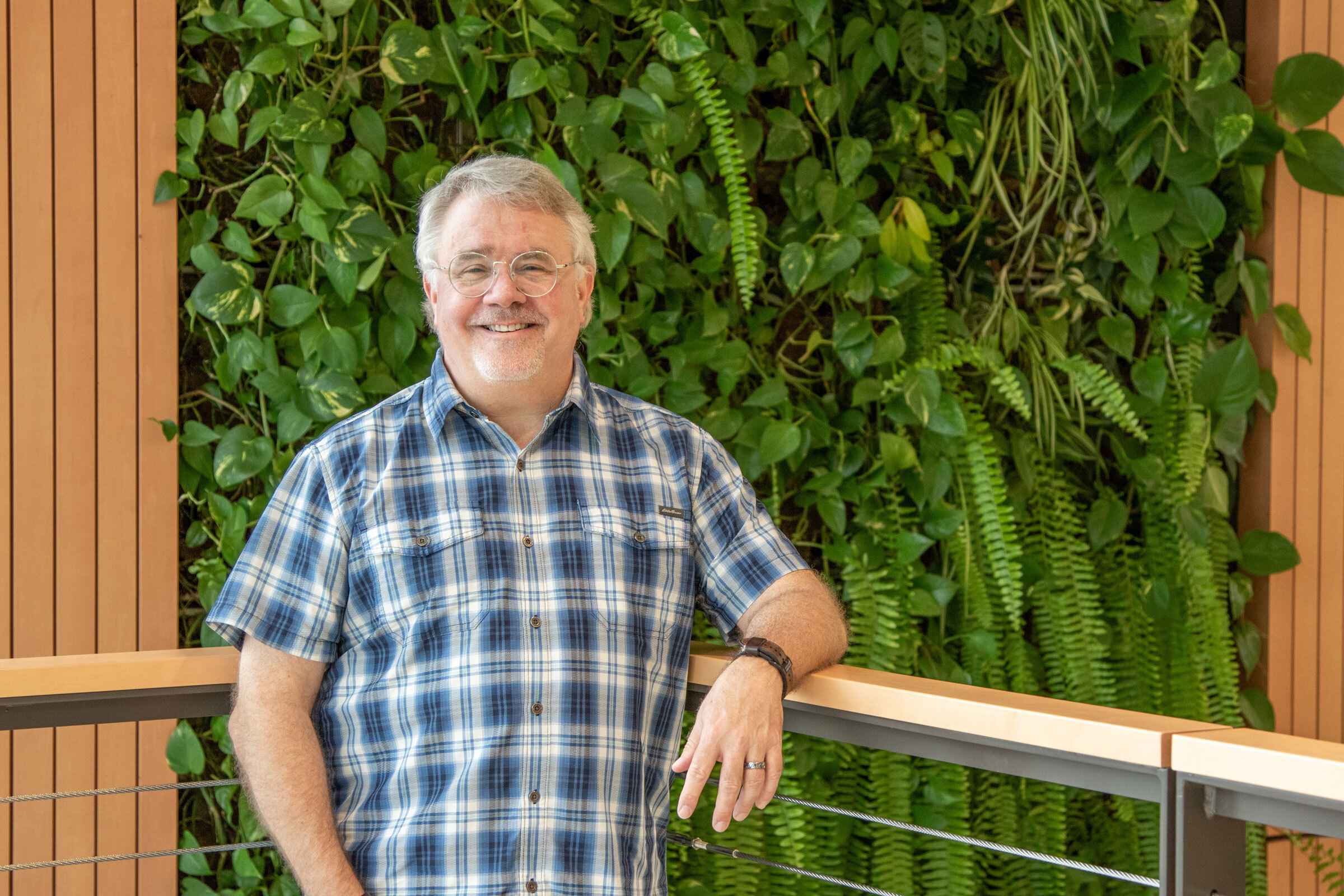John Warner, co-founder of green chemistry, named professor of practice
The educator, innovator, and researcher John Warner—known for co-founding green chemistry—has been named a professor of practice in the Golisano Institute for Sustainability (GIS) at Rochester Institute of Technology (RIT). Warner’s appointment will contribute to the institute’s work with industry partners to realize sustainable alternatives to the use of toxic, harmful chemicals.
“I identify first and foremost as an inventor of green-chemistry technologies,” John Warner often says to describe himself.
Warner began his career in chemistry at Polaroid Corporation, where he introduced the concept of non-covalent derivatization, a process for minimizing the impact of production in sectors like coatings, cosmetics, and pharmaceuticals. It is also used to develop treatments for ALS (amyotrophic lateral sclerosis) and Alzheimer’s disease.
In 1998, Warner and Paul Anastas co-founded the field of green chemistry with the publication of Green Chemistry: Theory and Practice. The textbook outlines 12 principles for reducing the environmental impacts of chemical use in industry, which often relies on toxic substances that can be harmful to humans, their communities, and ecosystems. He partnered with the investor Jim Babcock in 2007 to create the Warner Babcock Institute for Green Chemistry, a first for a research company focused wholly on furthering applications of the new field.
The Boston native has more than 335 patents to his name. Some examples of these innovations includea biomimietic hair color restoration,an asphalt product made from 100-percent reused material, and a photovoltaic company. But, importantly for Warner, green chemistry solutions have to work just as well as what they replace—and they need to do it at a reasonable cost.;
RIT appointment
Warner will serve as an expert resource for various GIS technical assistance and workforce-training initiatives. Most immediately, he will advise projects led by the New York State Pollution Prevention Institute’s (NYSP2I) green chemistry and emerging contaminants program, which is funded by the New York State Department of Environmental Conservation (DEC) to help companies replace hazardous substances with alternatives that are safer by design.
“I’m very excited to work with Dr. Warner and draw on his expertise to grow and expand the work we’re doing,” said Sarah Briggs, who leads the NYSP2I program. “It’s an incredible honor to bring his knowledge and talents to our team’s experience and capabilities in this growing field—I think we’re going to make a real impact in New York State.”
Achievements
Early in his career, Warner launched the first doctoral program for green chemistry at the University of Massachusetts at Boston. In 2004, he earned the U.S. Presidential Award for Excellence in Science, Mathematics, and Engineering Mentorship. Four years later, he was given the Leadership in Science Award by the Council of Scientific Society Presidents. The Society of Chemical Industry awarded him the prestigious Perkin Medal in 2014 for his contributions to applied chemistry. In total, Warner has received nine national awards and honors in the United States.
Warner testified in 2019 to the U.S. Congress during the Research and Technology Subcommittee Hearing in support of the Sustainable Chemistry Research and Development Act. The bill aims to create a more conducive environment for companies to disclose the use of toxics as part of efforts to replace them with green alternatives.
Five international universities include Warner on their faculties: Monash University (Australia), Chulalongkorn University (Thailand), Somaiya University (India), University of Birmingham (United Kingdom), and Technical University of Berlin (Germany). RIT is the first that is based in the United States.
“As an accomplished inventor and researcher, Warner is fluent in both business innovation and academic research and education,” said Nabil Nasr, the director of GIS and an associate provost of academic affairs at RIT. “This unique combination is in tune with our work at GIS to find sustainability solutions that cross the traditional industry, research, and policy divides.”
Warner began his appointment at RIT last spring.
Q&A with John Warner, RIT Professor of Practice
John Warner introduces green chemistry and explains what led him to help create it. He also shares what he values about GIS's approach to sustainability research and describes the role that workforce development has to play in implementing green chemistry














